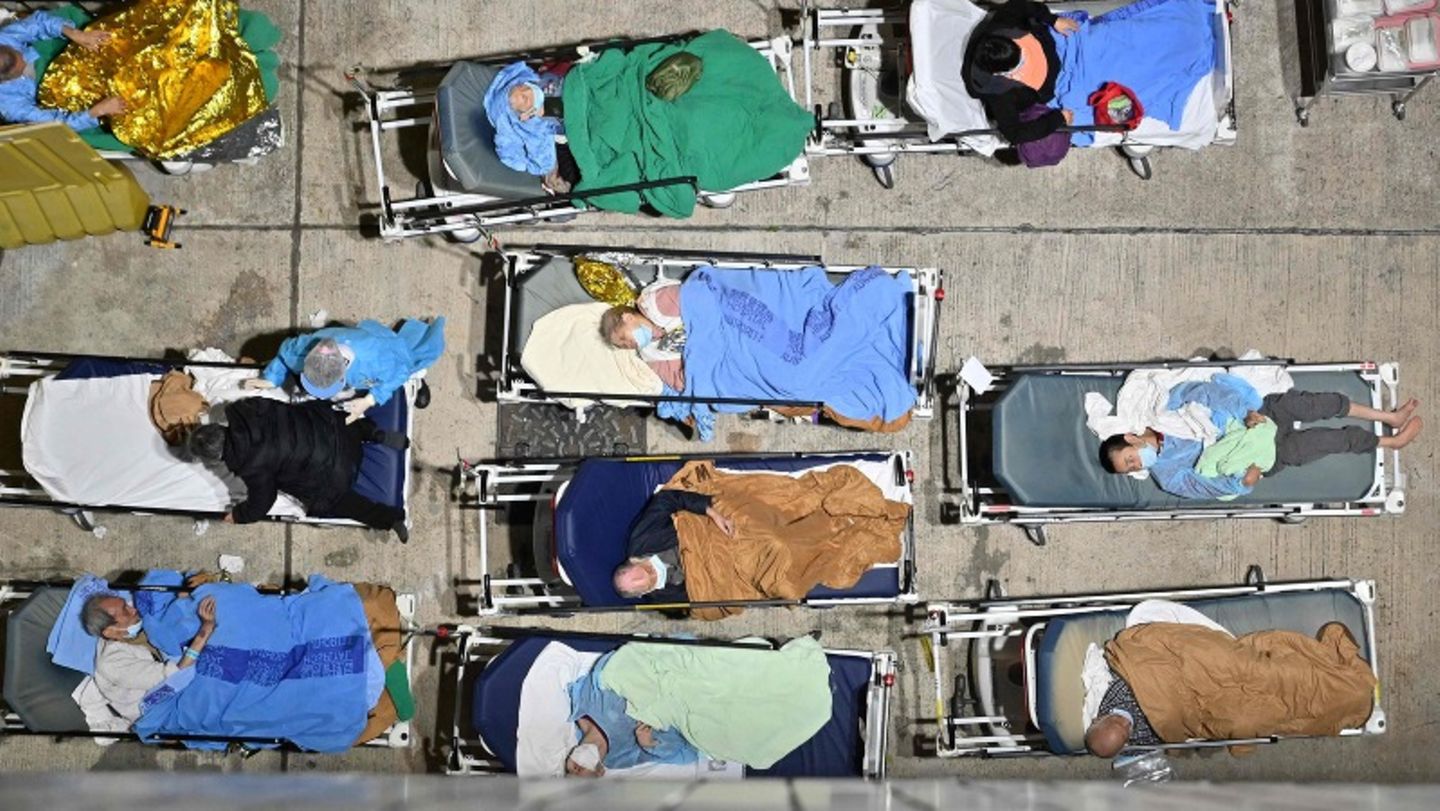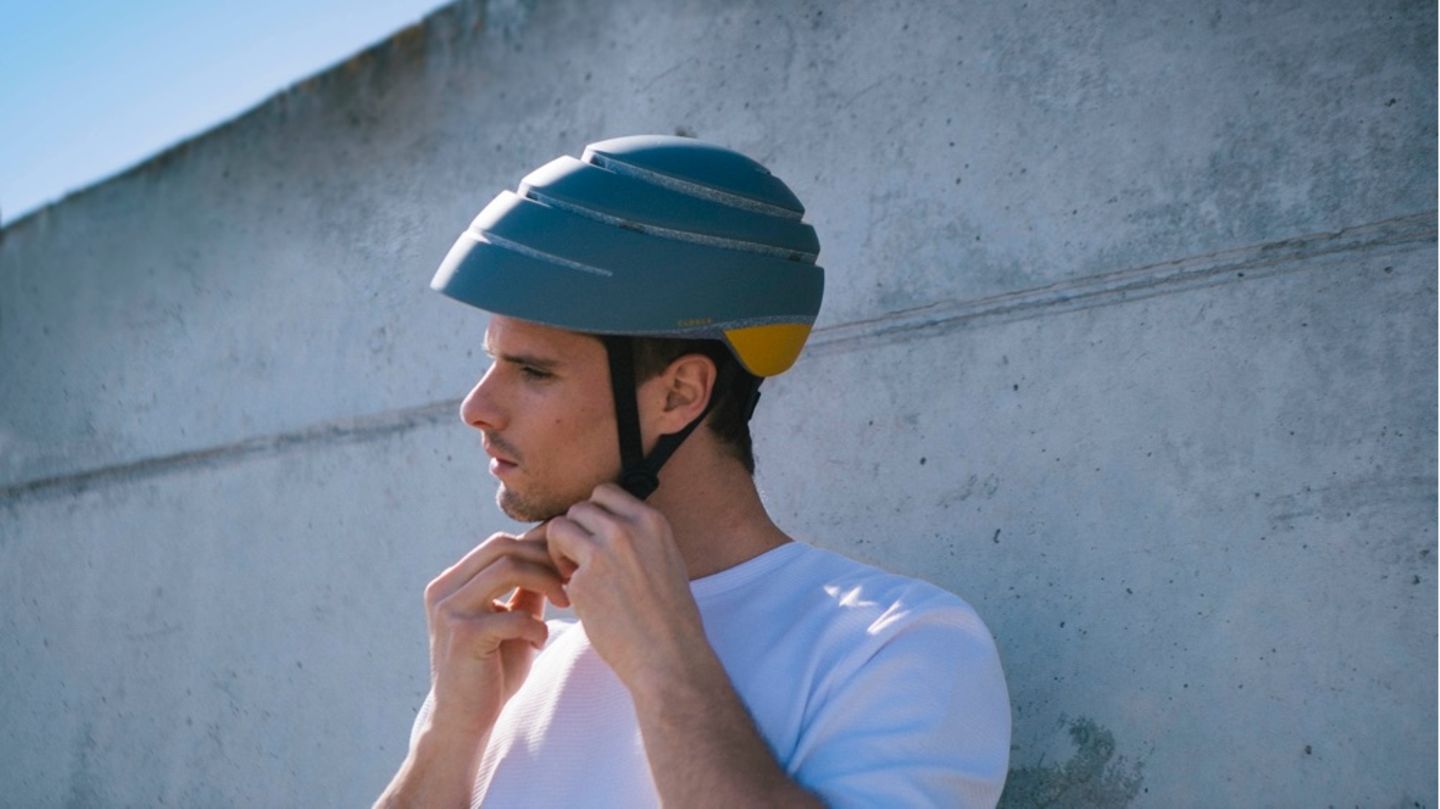Hardly any other country had the corona virus under control as well as Hong Kong. But that’s over now. The Omicron wave drives the number of infections to record highs – and dooms the zero-Covid strategy to failure.
In Hong Kong, corona patients are no longer just piling up inside the hospitals. The rush to the clinics is so great that the bedridden patients are parked in rows in front of the emergency rooms. According to the authorities, more than 10,000 infected people are waiting to be admitted. Queues, some of them kilometers long, also form in front of the test stations. People often queue here for hours to wait for their test results – which are increasingly positive.
The Chinese special administrative region is currently being overrun by the worst corona wave to date. Despite a strict zero-Covid policy, new infections are breaking new records every day, on Thursday the number jumped from 4285 the day before to 6116. After five months without a single corona death, at least 21 people died in Hong Kong last week, including a three-year-old girl and a 100 year old woman.
The seriousness of the situation is also shown by the fact that China’s head of state Xi Jinping himself has put his foot down. The city must “mobilize all possible forces and resources” and “take all necessary steps” to protect Hong Kongers, he was quoted as saying by newspapers loyal to Beijing. The fight against the virus must have “overriding priority”.
Corona in Hong Kong: quarantine in hotels and empty supermarkets
Until this wave, Hong Kong was largely keeping the pandemic at bay with its zero-Covid strategy. With a combination of strict distance rules and aggressive contact tracing, the seven million metropolis had contained the previous four corona waves relatively quickly. For much of the past year, the city did not report a single local case.
But the highly contagious omicron variant has changed the game.
After more than 100 people tested positive in a huge residential complex in January, an entire block had to be cordoned off and 37,000 people tested for the first time. The city hasn’t calmed down since then. As soon as a corona cluster is halfway contained, new cases appear elsewhere. The virus has now spread to more than 20 retirement homes and care facilities and reveals another weakness in Hong Kong’s fight against the pandemic: while the metropolis as a whole can show a high vaccination rate – more than 84 percent of people over the age of 11 have at least had their first vaccination – the proportion of over 70-year-olds just 56 percent. In addition, many Hong Kongers are vaccinated with Chinese vaccines, which have been shown to be less effective against infection than vaccines from Europe or the USA.
In addition to the hospitals, the quarantine facilities are now also completely overloaded, since according to the current rules every infected person has to be isolated. To create more space, , to book at least 10,000 hotel rooms to accommodate patients with no or only minor symptoms. In addition, 3,000 new public apartments are to be used to house infected people. Since lockdowns in individual districts can no longer be ruled out, many people have started hoarding large quantities of food. According to media reports, many supermarket shelves are already empty.
Omicron wave increases China’s influence
When the corona numbers began to rise, Prime Minister Lam initially promised a clear separation between Hong Kong’s “dynamic” zero-Covid strategy and that of mainland China. For example, compulsory city-wide tests are not practicable in Hong Kong, Lam defended himself against the demands from Beijing. In the meantime, however, the head of government herself has had trouble justifying her approach. “‘Dynamic zero’ – I admit that this is a political requirement of the mainland,” she said at a press conference in late January, and shied away from the responsibility. “(…) I’m not the initiator, so if you want an authoritative definition of ‘dynamic’, I’m sorry, I really can’t explain it.”
As the situation spirals out of control, there are growing concerns that China is taking advantage of the moment. With the national security law, Beijing has massively increased its influence on the special administrative region in recent years. Many now fear that the city will soon be threatened with similar draconian measures as on the mainland.
According to media reports, Hong Kong has already asked for an expansion of testing capacities, medical equipment and help with the construction of temporary isolation and treatment facilities. In addition, Beijing should guarantee the supply of food and everyday goods. The responsible authorities of the People’s Republic “must give the Hong Kong government comprehensive support,” Chinese President Xi Jinping then personally assured.
I’d rather have a picnic than go to a restaurant
The question that worries many Hong Kongers is: How much will this support cost Hong Kong in terms of residual sovereignty?
The first signs do not bode well. Contrary to Lam’s statement, plans are now being discussed to test the entire population of Hong Kong, as reported by “”. According to this, every Hong Konger could be tested three times for the virus in the coming weeks. “Hong Kong’s government is only following Beijing’s instructions, but it still hesitates (…) to go through with the full program,” explains Willy Lam, a political scientist at the Chinese University of Hong Kong, in the “”. “She knows that most people in Hong Kong don’t trust the Chinese way of doing things.”
A report by the AFP news agency shows just how great the distrust among the population is. For fear of surveillance by the Corona app, more and more people are not going to restaurants. Instead of checking in there with the state app, many prefer to get their food to-go and meet outdoors. A private picnic social media group has grown from 50 to more than 6,000 members since December.
But how long people can still avoid the app is questionable. In view of the dramatic corona situation, use should soon become mandatory even when shopping.
Sources: “”, “”, “”, “”, with AFP material
Source: Stern
David William is a talented author who has made a name for himself in the world of writing. He is a professional author who writes on a wide range of topics, from general interest to opinion news. David is currently working as a writer at 24 hours worlds where he brings his unique perspective and in-depth research to his articles, making them both informative and engaging.




